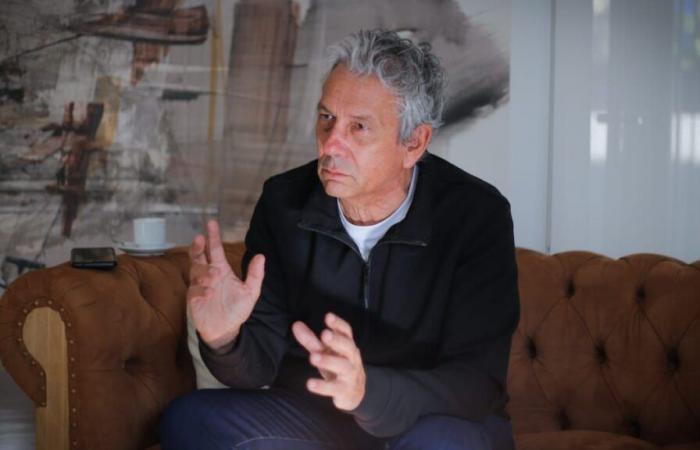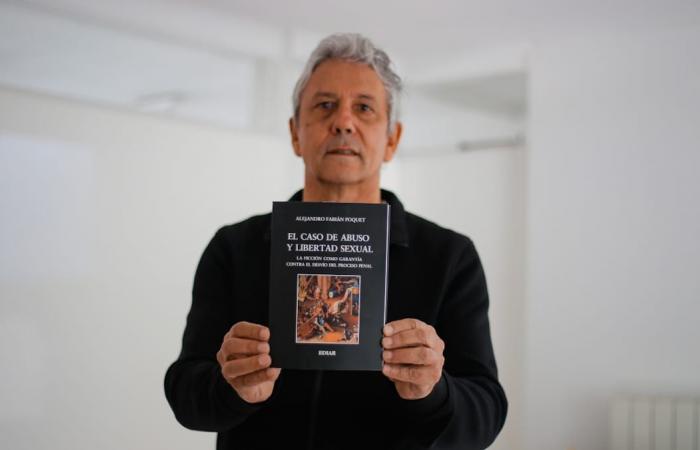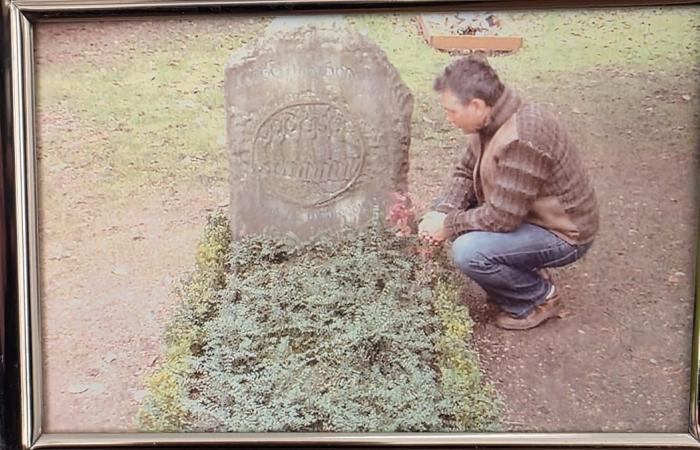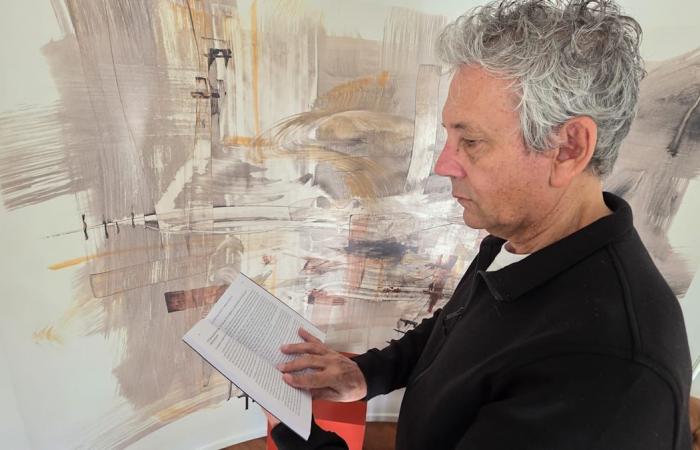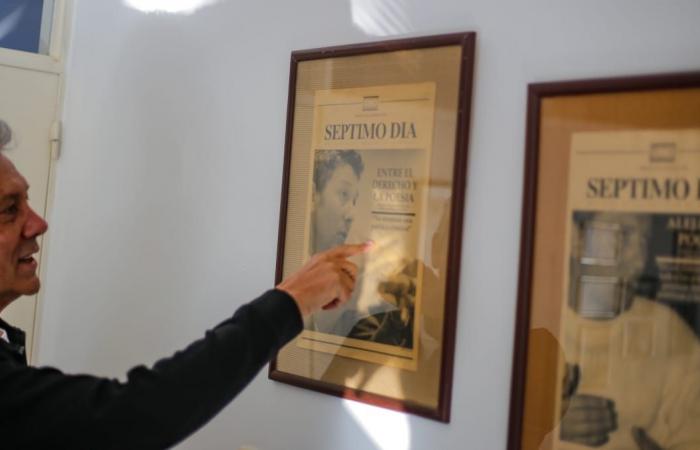Alejandro Poquet, Lawyer (12) .jpeg
The lawyer Alejandro Poquet and his new legal-literary work.
Photo: Diario Uno / Nicolás Rios
The criminal lawyer and another look on Borges
The walls show journalistic notes and framed photos. “Here I am next to the tomb of Jorge Luis Borges“He says Alejandro PoquetDevotee of the Argentine writer buried in Geneva, who gave a preponderant role in another of his legal-literary works: Borges and Criminology (2018). “María Kodama He was surprised; He said that legal aspects of Borges’s work had never been analyzed before, “he recalls before inviting coffee.
Alejandro Poquet, lawyer (3) .jpeg
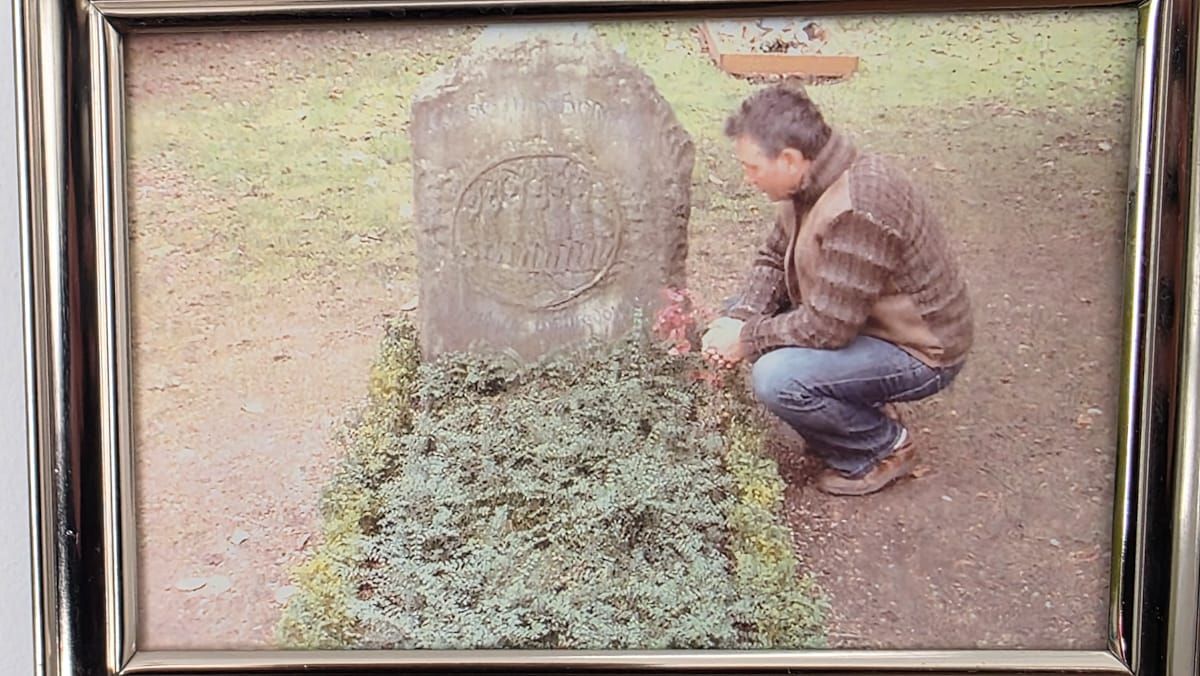
Alejandro Poquet in the tomb of Jorge Luis Borges, one of his literary referents and who recovered aspects linked to criminology.
Photo: Diario Uno / Nicolás Rios
– What does this new work represent?
– It is the treatment of a specific, fictional case but made with pieces of reality. You cannot make a totally abstract fiction without going hand in hand with literature. As I do with my latest books, art goes through the Right and the legal sciences. In this new work, it is a judicial tragedy. The subtitle gives greater precision: Fiction as a guarantee against criminal process. With this book, the idea is to warn: care when the Judiciary loses the north, that is, the ABC on the protection of people’s rights and guarantees. Of all. And in the most problematic and more tense cases, it is where those rights and guarantees should be protected.
Poquet and the serious story of Catalina and Juan Bautista
He lawyer Alejandro Little He is also a man of letters and knows how to design and apply the appropriate strategy to – through literary resources – keep the reader attentive and expectant about the protagonists, their roles and behaviors along a catchy plot. And he gets it.
The story fiction by Poquet happens in Chaco and is not accidental. He explains.
– The etymology of the word Chaco means Hunting territory; Then, Juan Bautista Bravo – one of the central protagonists – is entrusted to their ancestors to tell them that this is happening to him – they have been denounced by Catalina Dolce for a sexual crime – is it a kind of malefice for the place where we live? Beyond what he obtained in court, is more complex.
– Because?
– Because I think history is a criticism of the community legal. Over the years, one is disappointed by the academies and legal and judicial sciences and the profession; even of the assistants of the justiceas of psychology and psychiatry.
Alejandro Poquet, Lawyer (9) .jpeg
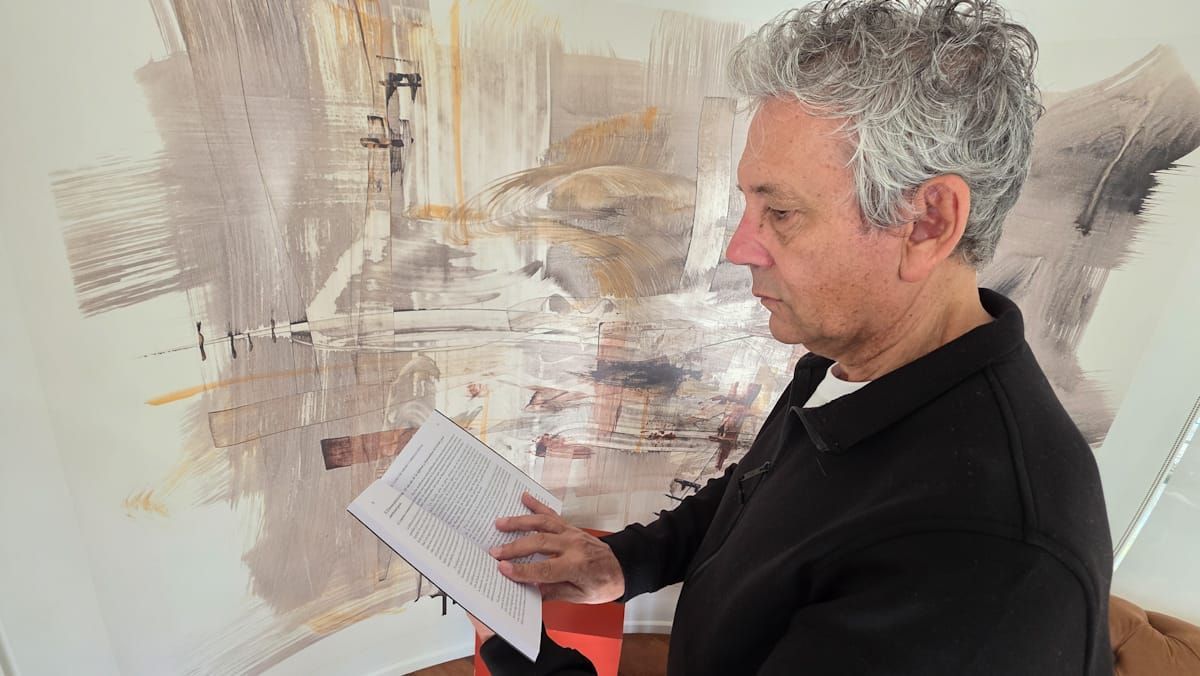
The lawyer Alejandro Poquet will present his book on Wednesday, May 7 at 17 in the Law of the UNCuyo.
Photo: Diario Uno / Nicolás Rios
Cristina, collaborator of Poquet, approaches and offers coffee for all. Brief pause. The host takes up the talk.
– In the book I also leave how those disciplines and the Legal Sciences and professionals – just, prosecutors, lawyers – in the judicial sand. When there are tensions and versions found and sexuality -condimento that tense everything much more and that we do not handle well- is the question, those protagonists of the judicial sand, are helped, complement or prevail the relations of domination and hierarchy when facing each case?
– What is it like today?
– Domination and hierarchy.
– What role do stereotypes play?
– They facilitate the task of justice because they say this is the bad or this is the bad one. Before, the woman will have done. Today, this man is denounced. In positivist law, love or hate towards people and not towards facts make all procedural rules and those principles so beautiful and healthy, they are aside.
Alejandro Poquet, lawyer (4) .jpeg
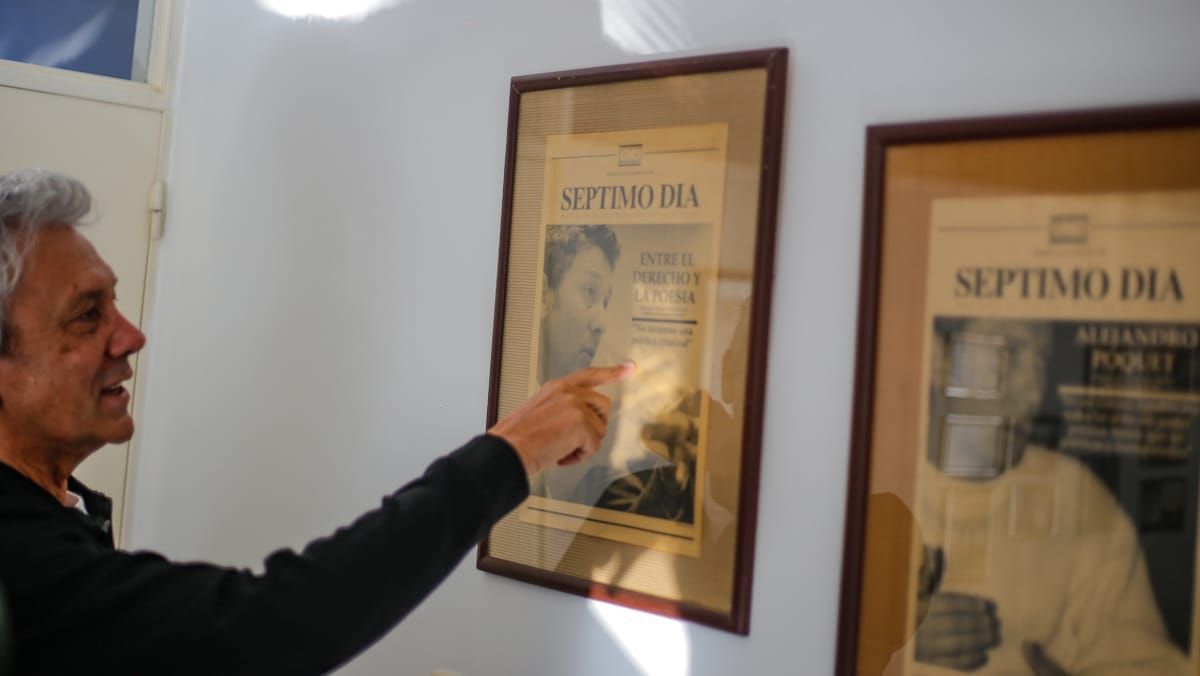
The lawyer Alejandro Poquet in his office, where he treasures journalistic notes.
Photo: Diario Uno / Nicolás Rios
– How do judicial powers behave?
– Without realizing, they send messages but be careful to encourage denuncialism, because many feminists do not agree with this. And it happens in all areas: I fight with the neighbor and denounce him in the Judiciary. Today, the Judiciary says that it is crowded with work, so it is important that it is discussed how much the work of justice yields, to which the salary is paid.
– What should judicial powers do?
– They must pacify But if they cannot do it, they must reduce the levels of violence but never reintroduce that violence with impunity or delays in the resolution of the cases.
– How do you synthesize this work?
– It is the story of a violent conflict that goes to Judicial Branch Where everyone loses, because the protagonists become dissatisfied. The confronted lose because, in the end, judicial disappointment brings them together. That is the judicial tragedy.
The former judges and jurists Raúl Zaffaroni and mendoza Aída Kemelmajer de Carlucci will accompany with their exhibitions to Lawyer Alejandro Poquet In the presentation of his new work, whose prologue has been written by Nile BatistaProfessor Emeritus from the State University of Rio de Janeiro, Brazil.

